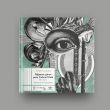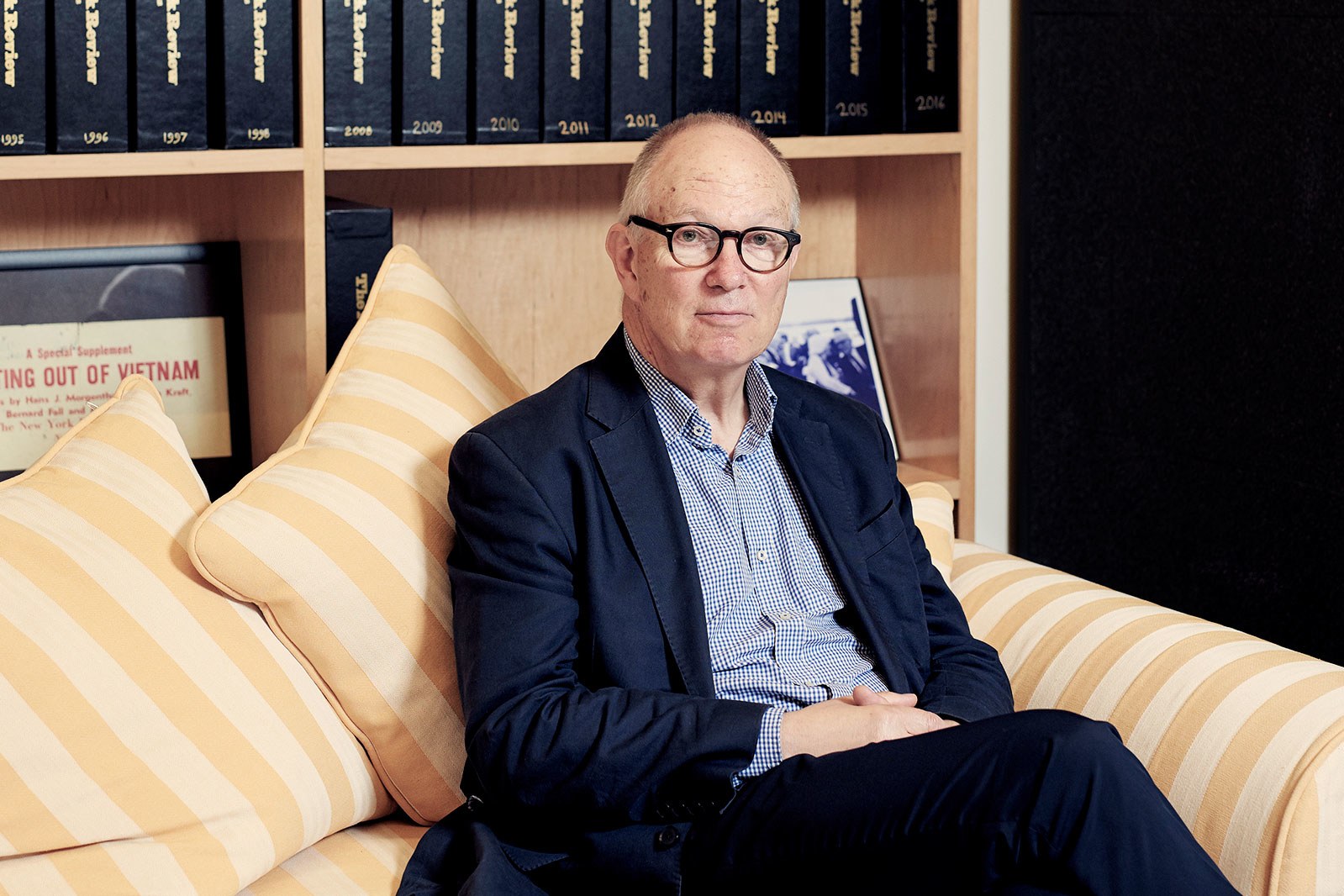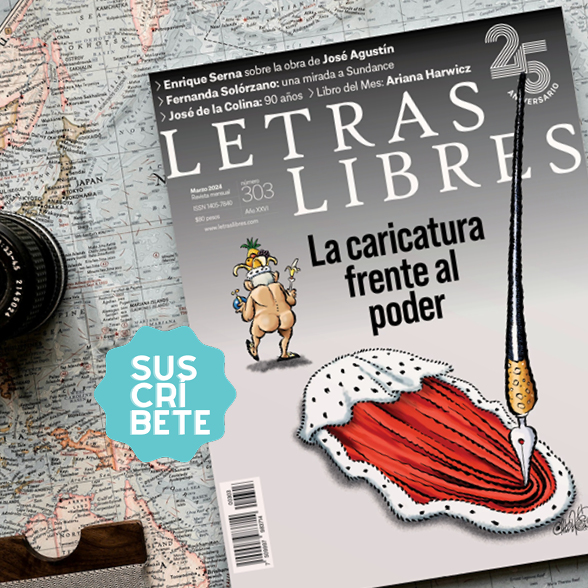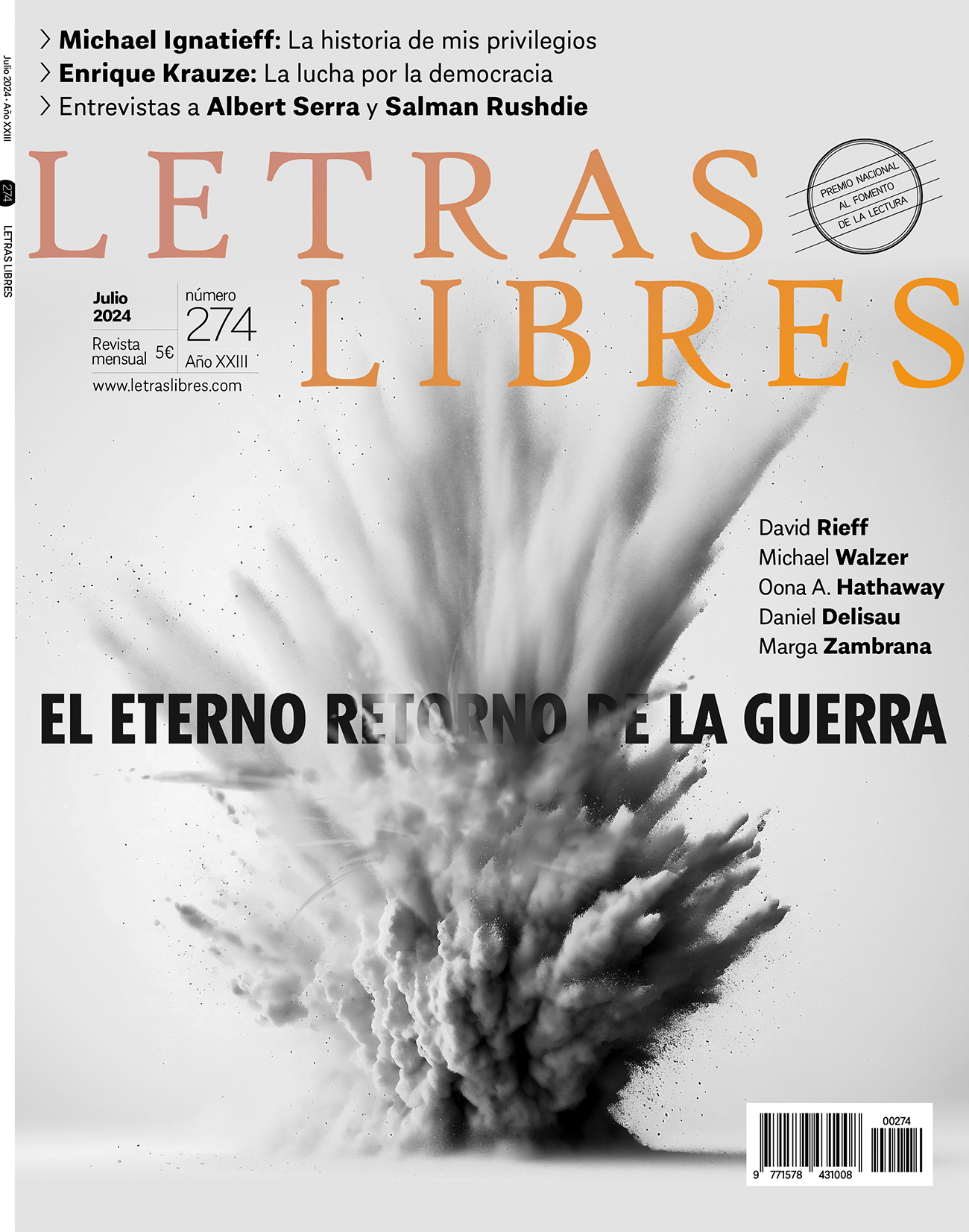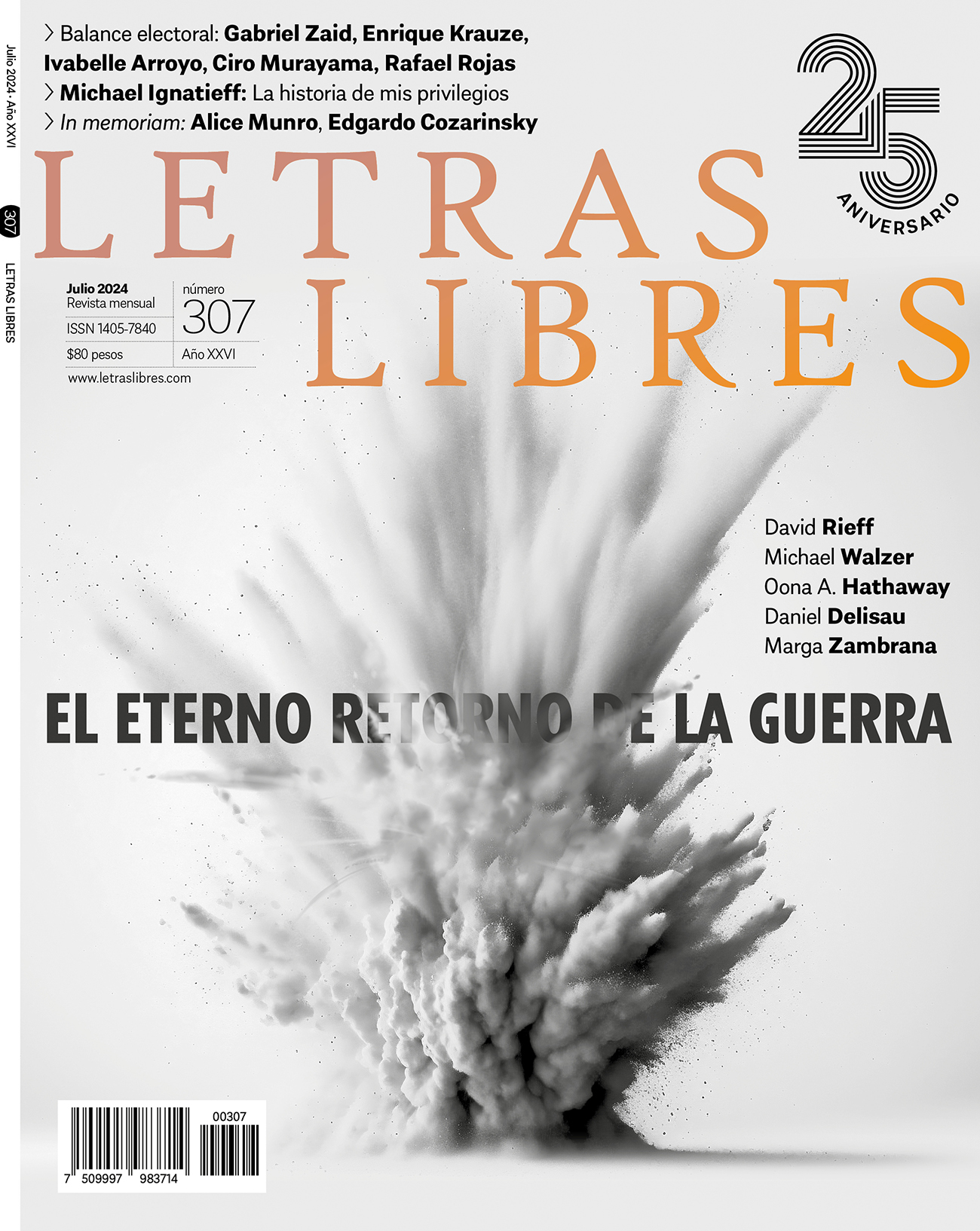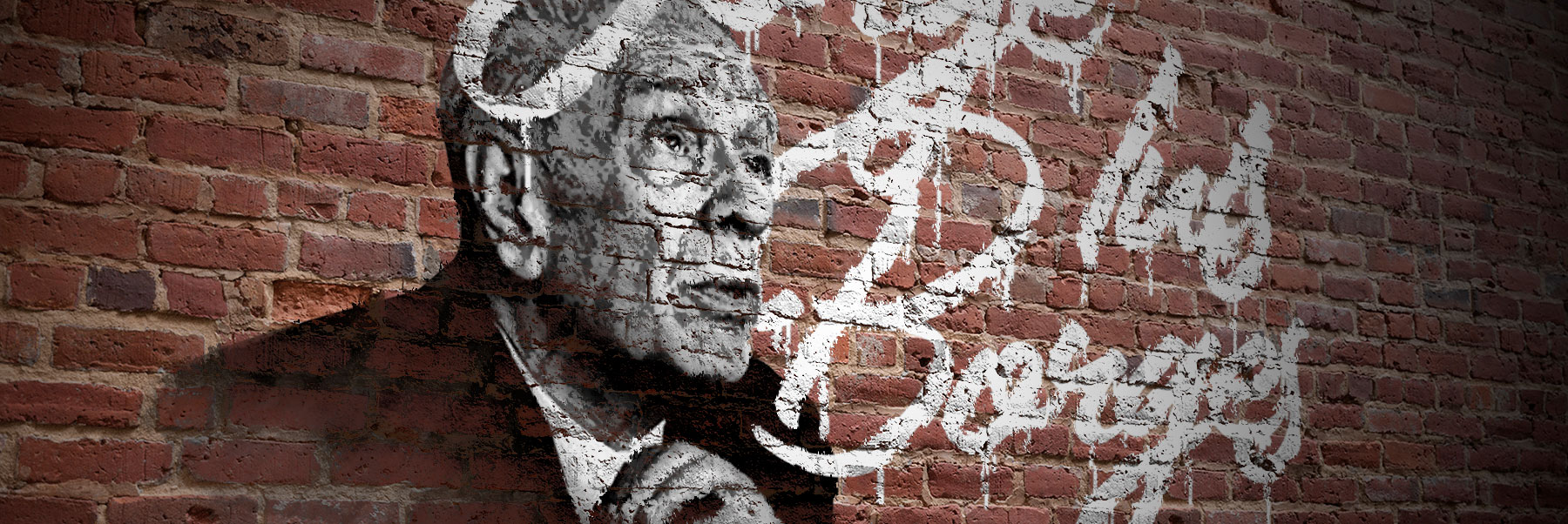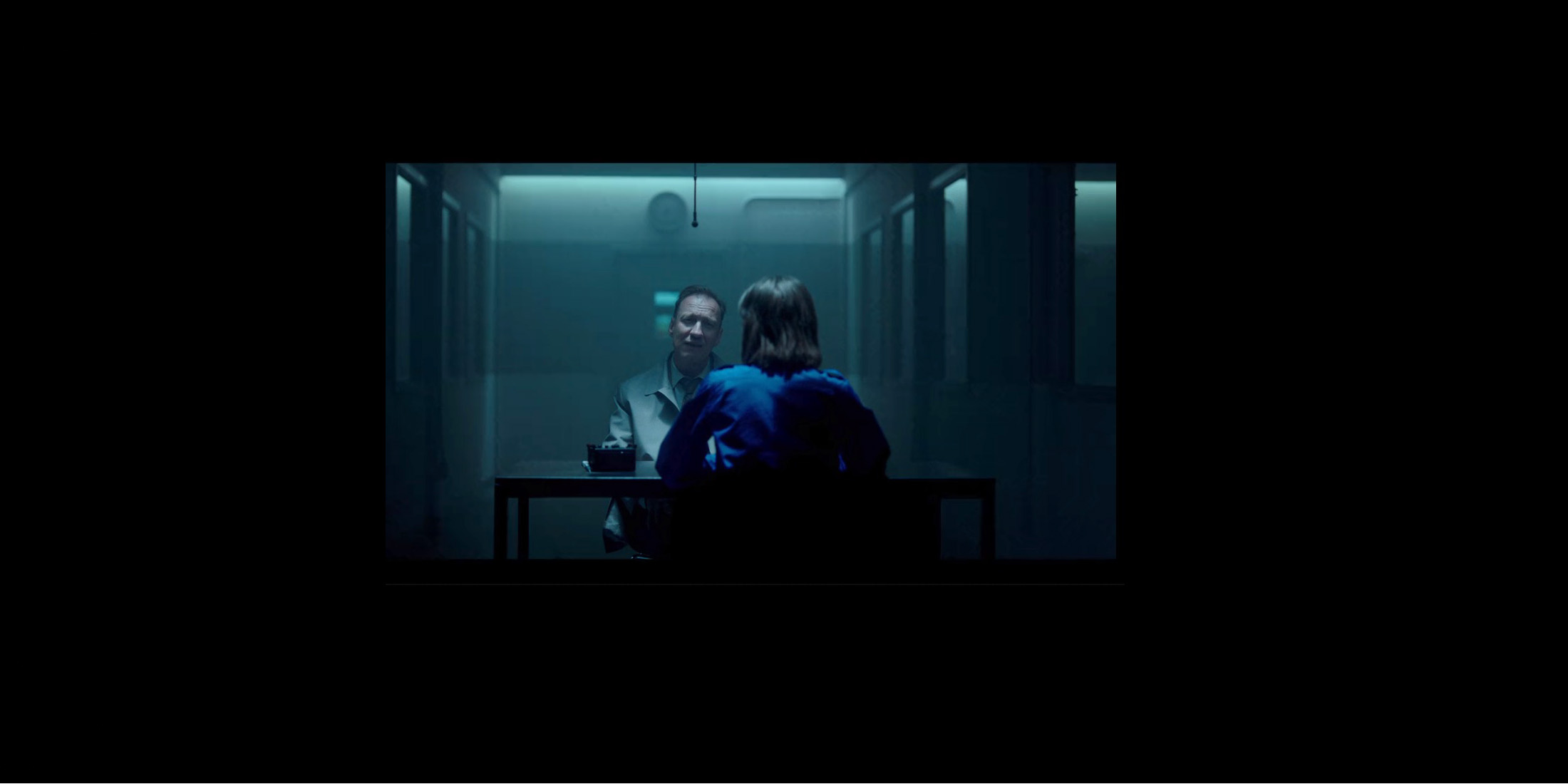In the film Broadcast news (James L. Brooks, 1987), William Hurt plays the role of a very telegenic but not too talented anchorman. One day, while interviewing a rape victim, the journalist sheds some tears. That not only wins him the admiration of his colleagues, but allows him to seduce the news producer (Holly Hunter) –who later finds out to her dismay that his tears were staged with the help of eye drops. But the film’s fraud is something else –that real tears were deemed to be an actual journalistic feat.
A year ago, the Dutch author and cultural critic Ian Buruma became the new editor of The New York Review of Books after the death of its veteran predecessor Robert Silvers. Under his direction, the magazine devoted its cover to topics ranging from the Venezuelan crisis, gun culture, the Palestinian conflict, Trump or homosexuality in Turkey to cinema, fiction and art.
Its October 11 issue, titled “The Fall of Men”, includes a personal account by the former Canadian radio host Jian Ghomeshi, disgraced in 2014 after being accused by 24 women of sexual assault and physical and verbal abuse during sex. He was tried on five counts and acquitted of four. The fifth charge was dropped when he reached a settlement with his accuser by signing what in Canadian law is called a peace bond –a set of measures to protect the alleged victim when “there are no reasonable grounds to believe that an offence has actually been committed”. In his essay, Ghomeshi relates, from his viewpoint, his civil departure and he reflects on forgiveness, his own abuse of power, the male social culture and the mass digital lynching.
The essay sparked an immediate scandal (the word controversy seems obsolete these days), which led Slate’s Isaac Chotiner to interrogate Ian Buruma about his decision to publish it. Buruma explained that his focus was to address the blurry edge of the #MeToo movement: for how long, and to which extent, should a man acquitted by the judiciary keep dragging the chains imposed by millions of strangers. What distinctions are drawn and how proportionality is assessed in this sort of parallel judicial system?
Five days later, Ian Buruma felt compelled to resign, according to his own brief comments, in the face of threats from the university presses, which help finance the publication, and the backlash in social media. He stood by his decision. And also deleted his Twitter account.
The criticism to Buruma’s decision can be divided into four categories: a) he failed to check the facts, b) he failed to be sensitive, c) he failed to meet editorial standards, and d) he failed to be a woman.
Fact-checking
The premise of Buruma’s publishing the essay is that Ghomeshi was acquitted by justice. This is a established, verified fact. And that’s when things begin to get blurry. Among them, the plausible suspicion –which Buruma does not dodge– that Ghomeshi’s sexual brutality was non consensual and the certainty that he was a jerk “who perhaps deserves social oprobium”. Another assumption is that no one has accused Ghomeshi of rape to date, as in Harvey Weinstein’s case. Between rape and –consensual– sexual sadism there are multiple shades of grey –fifty, to be accurate. This is not a minor matter, but a paramount one: if everything is rape, nothing is rape.
The reporter Jesse Brown, who along with Kevin Donovan first exposed the Ghomeshi’s case in 2014 at the Toronto Star, posted a piece a few weeks later under the title “Fact-Checking Jian Ghomeshi’s Comeback Attempt” which attracted some attention for its supposed crushing nature. It is only natural that journalists might seek to defend their reports, but similarly to some products packaged as “gourmet”, the prestige of the “fact-checking” label eclipsed the net content of the piece and, above all, distorted Buruma’s goals.
Brown berates Buruma for running a flippant, biased, unverified account. But Brown’s “crushing” fact-checking is itself disappointing, absurd and even counterproductive at times. As he points out an anachronism, we learn about the existence of some pictures which would probe that violence during sex was, at least in one case, consensual. Five women talked to Brown before the case became public –not motivated by the media storm ensuing just one case, as Ghomeshi implies. What drove those five women? And what about the other 19? (The events span 20 years, as Brown says later –Ghomeshi had 20 years for realizing he was an asshole, another fact; nevertheless, Brown does concede that he could have found this out about himself all of a sudden, as he suggests. Sometimes Brown pretends to be debunking Ghomeshi when he’s in fact only confirming: “[Being cleared on all counts] This is false: As he alludes to in the following sentence, Ghomeshi bargained out of one sexual-assault charge”; “It is indeed possible that Ghomeshi was never made aware of these complaints, as he claims”, etc. Brown asks rhetorical questions (“What exactly were the ‘things’ Ghomeshi wanted?”) already answered by Ghomeshi’s in his account (hair-pulling, hitting) without omitting the most serious allegation: nonconsensual choking.
Ghomeshi’s account is indeed biased, glib, egocentric and leaves out relevant facts (a pledge of good behavior is not the same as a restraining order). However, he also omits facts favorable to him. Why was he acquitted? Judges found that victims’ testimonies were not reliable, despite the similarities between them. For instance, the ruling points out that it seems odd to send flowers to the man who has tried to choke you against your will. It might be odd, but definitely not impossible.
But beyond the criminal code, who gets to decide, and why, on a professional exile and the duration of the sentence? Who gets to decide who is entitled to the presumption of innocence and to self-defense? It should be all settled through a shouting match? “The marketplace responded forcefully to that thing”, wrote Sam Wilkinson at Ordinary Times in reference to the supposed outflow of subscribers from the NYRB. The marketplace stood in ovation when Louis C. K. reappeared by surprise on a stage last August. “Comedy Clubs Are Ready for Louis C.K.’s Return” read a headline in The New York Times, adding: “Is Everybody Else?”. The marketplace is never other people.
If this is about fact-checking personal accounts, what should we do with Dylan’s Farrow letter, and Nicholas Kristof, who published it in the New York Times, and the then editor Jill Abramson?
Sensitivity
“The exact nature of his behavior—how much consent was involved—I have no idea, nor is it really my concern”. This is likely the most condemnatory of Buruma’s comments in his interview with Chotiner. His rudeness might be understandable –he had repeatedly explained why and for which purposes he ran the story. Maybe Chotiner was seeking an apology from Buruma, or an open vindication of Ghomeshi, but he found instead an almost extinct species –editorial authority. Rather than frivolousness, the fact that Buruma defended so firmly –and then wearily– his decision suggests that it was not a decision taken on a whim.
Damon Linker, in The Week, noted that his situation became aggravated by his failure to display “insufficient outrage and indignation about Ghomeshi’s actions”. Jia Tolentino reproached the editors, in an essay about “the laws of patriarchal physics” for The New Yorker, that they did not demand from this kind of men an apology to the victims. In this new catechist trend of journalism, praying is not enough –you must be seen at the midday mass on Sundays.
Lastly, there is a striking cruelty, often subtle but still creepy, in some of the critics condemning Buruma for his insensitivity. “[I] haven’t read [Buruma’s] troubling memoir of his depraved youth in Japan, which might explain things” (Heather Mallickstar, The Star); “I wonder how much time will pass before Buruma writes his own take on his own fall from grace, and who will provide him the platform to do so. […] How long is his fall, and how cushioned will it be once he finally hits the ground? (Esther Wang, Jezebel.com). The language used (“attempted comeback”, “plots”) to describe the efforts of the accused –and acquitted– men for a chance to rebuild their lives is also symptomatic.
Editorial standards
Ian Buruma is a 66-year-old intellectual and exèrt on Asia who has contributed to cultural media and many institutions across the world. He teaches a course called “Democracy, Human Rights and Journalism” at the Bard College. He was awarded with the Erasmus Prize “for making an especially important contribution to culture, society or social science in Europe”, along with other recognitions for his work. He is the author of some 30 books about Asia, war, religion and freedom. One of his most celebrated works is Murder in Amsterdam, about tensions between Islam and secularism in the Netherlands and Theo Van Ghogh’s murder.
Ian Buruma is an editor who assumes that his readers are adult people who are able to read a text critically and can reach a conclusion by themselves. Even when it is written by a sexual predator. Some have also reproached Buruma for Ghomeshi’s poor prose. It would be interesting to ask these critics –no obfuscation intended– if an essay by Josef Fritlz, the Amstetten criminal, should be published for its literary virtues.
Meghan O’Rourke, at The Atlantic, and others have claimed that it is “false to pretend” that Buruma’s decision of running the story has added nothing useful to the debate. I do think there are some points in Ghomeshi’s text –and subtext– worth of some consideration.
“My name, at least in Canada, turned into a metonym for everything from male privilege to the need for due process”. Activist journalism is highly selective when it comes to establishing the major-subjects-of-our-times, and when it is licit to load them on the shoulders of a particular drama. Jill Filipovic, commenting on a recent interview with Soon-Yi Previn, Woody Allen’s wife, wrote in CNN: “Why New York magazine agreed to such shoddy and unethical journalism is an outstanding question. Here the magazine had an opportunity to explore with honesty a complex (to say the least) series of relationships, missteps, power and gender dynamics that relate profoundly to the inflection point where American society sits in 2018”.
“I cannot just move to another town and reboot with a pseudonym. I’m constantly competing with a villainous version of myself online. This is the power of a contemporary mass shaming”, says Ghomeshi. What does the fourth power do on the face of such power? “For weeks I was used as clickbait and a meal ticket for certain reporters who pumped out whatever stories they could with my name in the headline. One writer questioned my upbringing, using a comparison to the convicted murderer Paul Bernardo”. The problem is not new, but its exponential nature is.
And some critics –men– might want to pay attention to this warning: “The necessary image of a liberal public broadcaster can be tediously correct. I wore the right ribbons, used the right hashtags, hosted the right guests. […] I attended demonstrations and spoke at progressive fund-raisers. It didn’t occur to me that I could ever be one of the bad men”, writes Ghomeshi.
Many critics emphasize –rightly– that the #MeToo movement is a major subject of our time, but at the same time they claim that it is a marginalized debate about which the difficult questions are not being asked. If this is a subject “of our time”, the reason is not only the progresses achieved by women and their challenge to long-lasting patriarchal dynamics, which didn’t occur suddenly this year; it is also because now the debate is being addressed and the difficult questions are being asked in order to achieve that progress. But these are not the only questions –in a free society there is room for others too.
Being a woman
It has been suggested that Buruma’s successor should be a woman. (According the non-profit organization VIDA, only 23% of essays published by the magazine in 2017 were penned by women). Buruma is not a misogynist, and several female editors have faced that very problem, which is not the subject of this piece.
It has been said that this is not about freedom of speech –those who say it usually mean theirs–; that of course the nuances about #MeToo consequences are welcomed. Meghan O’Rourke at The Atlantic: “He could have asked any number of sophisticated writers or thinkers—maybe even a woman—to write an essay that more thoughtfully probed the “undesirable consequences” of the #MeToo movement”.
Go tell Katie Roiphe.
When you subject an issue for debate, specially one that involves the suffering of so many people, you are exposed to criticism. And it is the right thing. But lately, the debate is being crushed by callings more or less unveiled to the boycott or censorship. The backlash caused by the interview with Buruma only confirmed the appropriateness of the questions he asked by running Ghomeshi’s essay.
I am an optimist and I believe that the internet civilizing process will continue –the lootings are beginning to be frowned upon with the new laws on intellectual property and the streaming platforms, and I also hope that the Rule of law principles will eventually reign over the internet and all mass lynching will be condemned.
Maybe we should start by stopping the bombing against the institutions. It is not Steve Bannon’s freedom of speech. It is not Jian Ghomeshi’s freedom of speech. They have countless platforms to express themselves.
It is The New Yorker’s and NYRB’s freedom of speech. This was something perfectly understood by Zanny Minton Beddoes, The Economist editor. And the now dismissed Ian Buruma.
(Madrid, 1978) es diseñadora y traductora.



